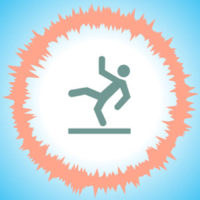What Type Of Visitor Are You?

When you are injured due to the recklessness or negligence of a business owner or landowner, and decide to bring suit to try and recover for your injuries, you would bring that suit under a legal theory called premises liability. In Florida premises liability law, the criteria you have to show in order to recover will depend on which type of visitor you are determined to be, since each type is owed a different level of care from the property owner. It is crucial that you understand where you fall, depending on the facts of your situation.
Invitees
Invitees are defined as people who have been invited to come onto the property, as one might imagine. There are two subclasses of ‘invitee,’ which are important to differentiate, though they are afforded similar protections under the relevant law. You may be a public invitee, which means that you have been granted permission to come onto the property for a purpose that allows entry to members of the public – for example, visitors to Florida state parks would fall under this classification. Alternatively, you may be a business invitee, which means that you are allowed onto the property for a purpose related to business dealings with the owner – most visitors to retail stores are classified this way.
An invitee is entitled to the highest degree of care from a Florida landowner. The landowner is liable to invitees if it can be shown that they have (1) “negligently failed to maintain” the premises in a “reasonably safe” condition; and/or (2) failed to eliminate any dangerous conditions that they knew of or should have known about; and/or (3) that they failed to warn the invitee of any dangerous conditions that they were not able to eliminate. In short, invitees must be protected from any dangers that are known, and warned about any dangers the owner cannot fix.
Licensees & Trespassers
The second type of visitor under premises liability law is called a licensee. A licensee is someone who is allowed onto property for a purpose of their own (as opposed to any purpose of the property owner’s). An example of a licensee would be a door-to-door salesman, or a child requesting to go into a neighbor’s backyard to retrieve a ball. Licensees are not owed as much care as invitees; in Florida, the only requirement for a landowner is not to “willfully or wantonly” harm the licensee or expose them to danger. There is no requirement to actively make the premises safe for them.
A trespasser is the last classification, and no duty is owed to a trespasser at all except to avoid maliciously or recklessly harming them. The property owner does not have to make the property safe, and if they do not know of the trespasser’s presence, the property owner owes no duty at all. The one exception to this is the so-called ‘attractive nuisance’ doctrine; this applies to children who might be lured onto private land because of some ‘attractive nuisance’ there, and child trespassers are owed a higher duty of care because they cannot necessarily be trusted to know a danger when they see one. Examples might include discarded furniture or refrigerators, construction sites, or bodies of water.
Contact A Tampa Premises Liability Attorney Today
Premises liability is a complex area of law, and it can feel overwhelming to try and bring suit for injuries you suffered unless you have an experienced legal professional on your side. The Tampa premises liability lawyers at the Rinaldo Law Group have handled these types of cases for years and we are ready and willing to try and assist you with yours. Contact our offices today for a free consultation.
Resource:
scholar.google.com/scholar_case?case=17897995732852091515&q=Post+v.+Lunney,&hl=en&as_sdt=6,44
https://www.tampainjuryaccidentlaw.com/florida-slip-falls-2/
